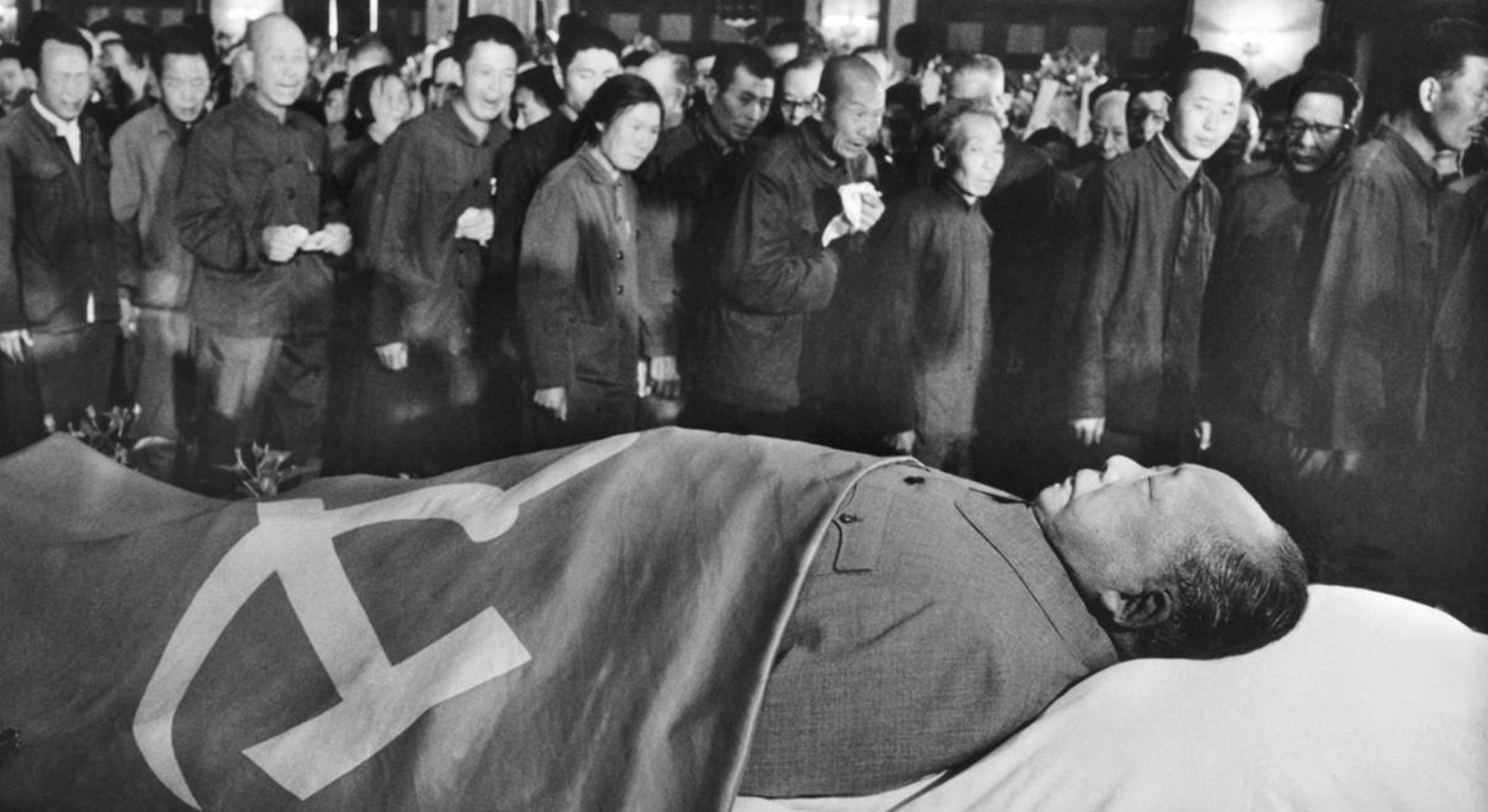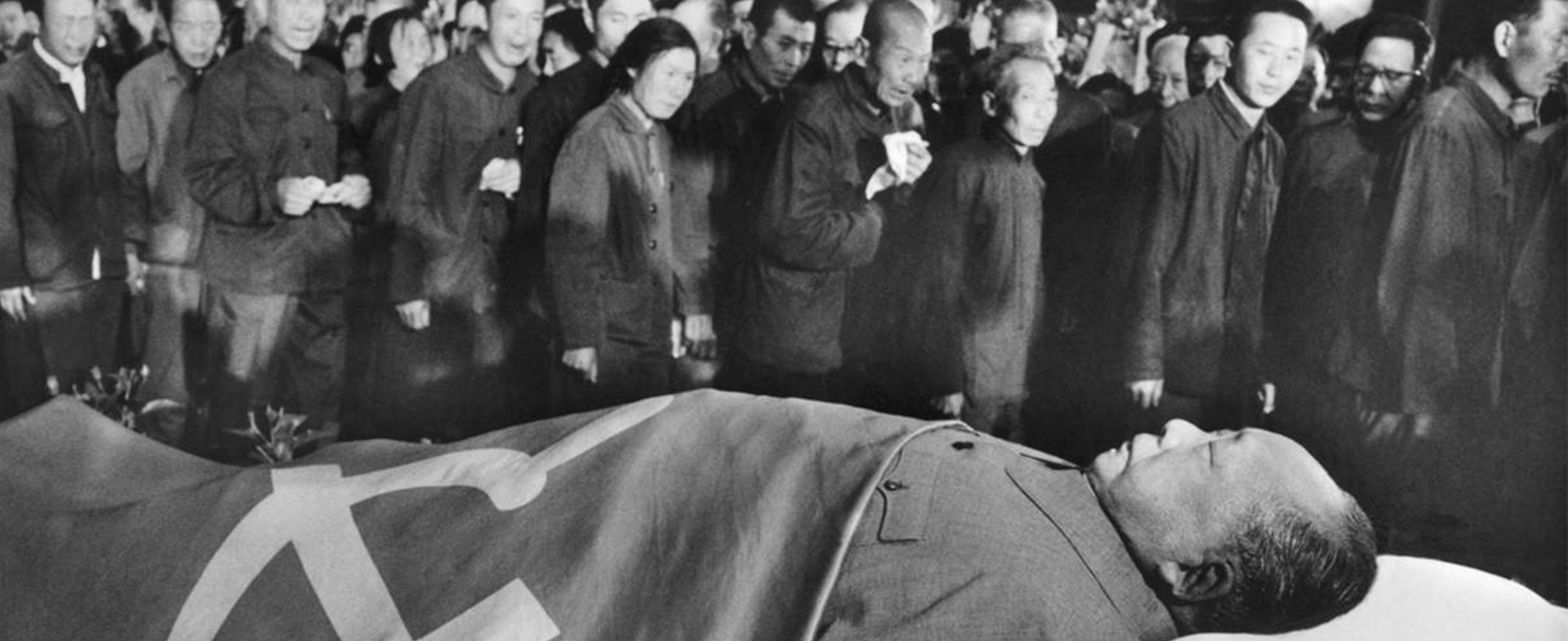


Zhou was one of the few more moderate members of the Communist Party, and he worked to stabilize China by reinstating purged officials and attempting to restore the economy. In 1972, Mao suffered a stroke. In the same year, Zhou learned he had cancer. Deng Xiaoping, who had been purged early on in the Cultural Revolution, returned to the political scene and took effective control of the government as Zhou became more ill. This move was opposed by Mao's more radical wife and her allies, who became known as the Gang of Four.
During the next several years, a protracted factional struggle took place between the radical Gang of Four and the moderates led by Zhou and Deng. Zhou died of bladder cancer in 1976 and the public gathered in Tiananman Square to mourn. The Gang of Four's attempts to suppress public displays of grief resulted in demonstrations against the Gang of Four and Mao himself.
Chairman Mao, China's leader for 27 years, died in September of 1976, and the entire country entered an extended period of mourning. Hua Guofeng seized power, and arrested the Gang of Four, denouncing them as 'counter-revolutionary'. Deng regained power in 1977, and remained in control for the next 20 years. He would lead China toward capitalism, more economic freedom, and stronger ties with the international community.
1.5 million people were killed during the Cultural Revolution, and many others would be tortured or humiliated. Although the Cultural Revolution ended when the Gang of Four were arrested, its effects would be felt for decades to come.